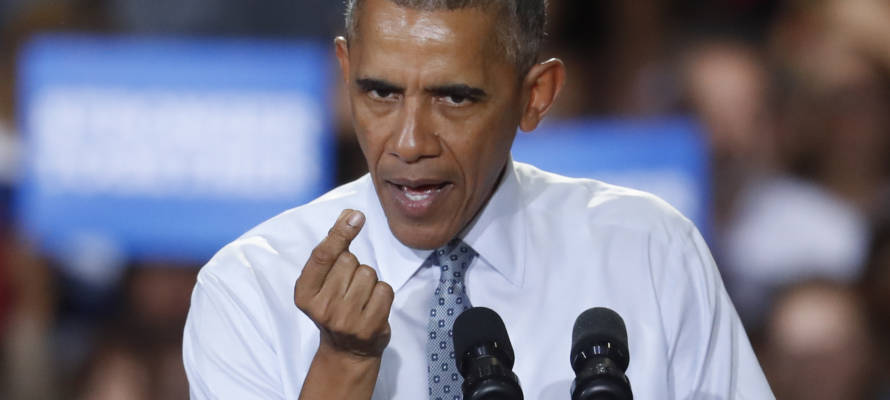After the White House made clear it is exploring options that could potentially damage Israel in an end-of-term move, the WSJ asked, “Does Mr. Obama want to be remembered as the President who criminalized Israeli citizenship?”
By: Barney Breen-Portnoy/The Algemeiner
The White House has instructed the State Department to prepare an “options menu” detailing potential diplomatic steps that could be taken as part of an end-of-term Israeli-Palestinian peace push, the Wall Street Journal reported on Tuesday.
In an editorial — titled “Obama’s Israel Surprise?” — the WSJ said a UN Security Council resolution that condemns Israeli settlement construction or formally recognizes a Palestinian state would be “a boon to the bullies in the Boycott, Divestment and Sanctions movement, while also subjecting Israeli citizens and supporters abroad to new and more aggressive forms of legal harassment…Does Mr. Obama want to be remembered as the President who criminalized Israeli citizenship?”
Moreover, asserted the editorial, a Security Council resolution setting parameters for an Israeli-Palestinian peace agreement would be an even graver “blunder.”
“President Obama may be the last man on earth to get the memo, but after decades of fruitless efforts to end the Israeli-Palestinian conflict it might be wiser for the U.S. to step back until the Palestinians recognize that peace cannot be imposed from the outside,” it concluded. “If Mr. Obama is still seeking a Middle East legacy at this late stage in his presidency, his best move is do nothing to make it worse.”
In Politico on Monday, State Department veterans Aaron David Miller and Richard Sokolsky advised whomever the next president is not to “chase after Israeli-Palestinian peace without clear indications that the locals themselves and the Arabs, too, are prepared to act.”
“Washington should stay away from high-profile U.S.-initiated efforts to take on the big peace process issues,” they wrote. “The advice Bill Clinton gave to one of us before the July 2000 Camp David summit is inspirational but not always right: trying and failing isn’t better than not trying at all. Failure undermines U.S. prestige and power in war and peacemaking. It already has.”
“[T]he time for American-created transformational diplomacy in this region has long passed…If Americans want Hollywood endings, they should think about going to the movies,” Miller and Sokolsky concluded.
Over the weekend, the Washington Post said any Obama-led Israeli-Palestinian peace initiative launched during the lame-duck period between the presidential election on Nov. 8 and the inauguration of Obama’s successor on Jan. 20. would likely be viewed in the Middle East as “legacy-seeking grandstanding rather than as a contribution to peace.”
Concerns have been growing that Obama might not protect Israel at the UN as his time in office comes to an end. Last week, Washington Post columnist Charles Krauthammer said Hillary Clinton supporters must call on the Democratic presidential nominee to ensure Obama refrains from making any diplomatic moves against the Jewish state.
Earlier this month, Malcolm Hoenlein — executive vice president of the Conference of Presidents of Major American Jewish Organizations — said he had “some concerns about what Obama and others may do” regarding the Israeli-Palestinian peace process before Jan. 20.
“This is based on things I heard from him a year ago about his priorities and the understandable importance of his legacy to him,” Hoenlein said. “And I listen to his speeches and I have seen some of the harsh statements that are being issued…about Israeli settlement policies. The language being used is much stronger than we’ve seen in the past and I’m afraid that this could be indicative of what a forthcoming UN Security Council resolution against settlements, or something that goes even further, might look like.”
